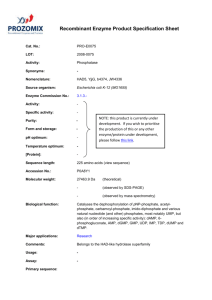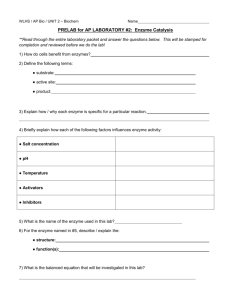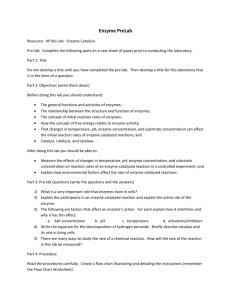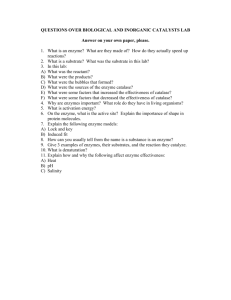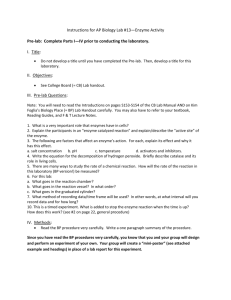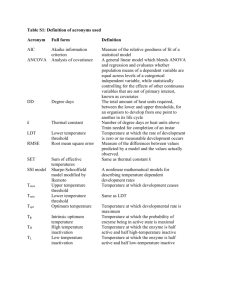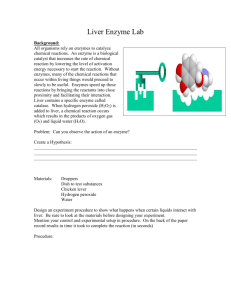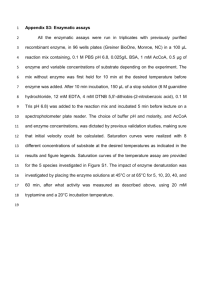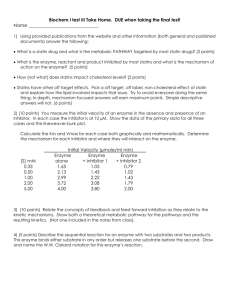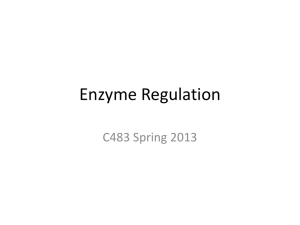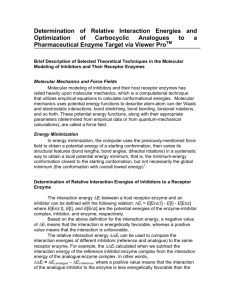Experiment 2 The effects of temperature, pH, activator
advertisement
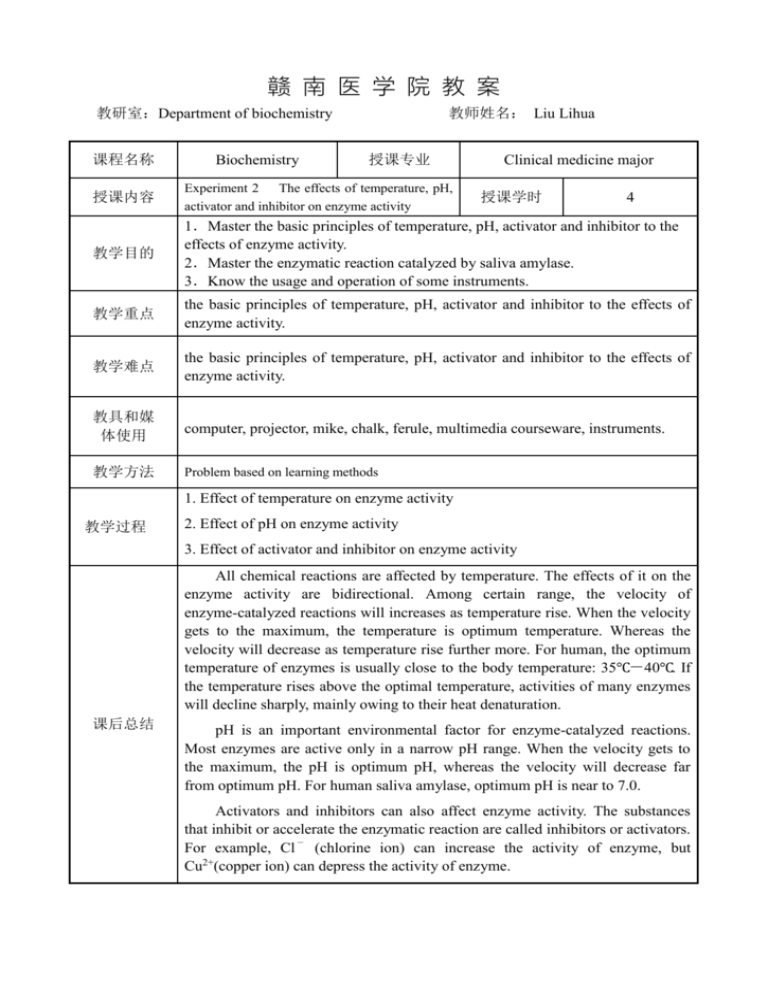
赣 南 医 学 院 教 案 教研室:Department of biochemistry 课程名称 Biochemistry 教师姓名: Liu Lihua 授课专业 Clinical medicine major 授课内容 Experiment 2 The effects of temperature, pH, activator and inhibitor on enzyme activity 教学目的 1.Master the basic principles of temperature, pH, activator and inhibitor to the effects of enzyme activity. 2.Master the enzymatic reaction catalyzed by saliva amylase. 3.Know the usage and operation of some instruments. 教学重点 the basic principles of temperature, pH, activator and inhibitor to the effects of enzyme activity. 教学难点 the basic principles of temperature, pH, activator and inhibitor to the effects of enzyme activity. 教具和媒 体使用 computer, projector, mike, chalk, ferule, multimedia courseware, instruments. 教学方法 Problem based on learning methods 授课学时 4 1. Effect of temperature on enzyme activity 教学过程 2. Effect of pH on enzyme activity 3. Effect of activator and inhibitor on enzyme activity All chemical reactions are affected by temperature. The effects of it on the enzyme activity are bidirectional. Among certain range, the velocity of enzyme-catalyzed reactions will increases as temperature rise. When the velocity gets to the maximum, the temperature is optimum temperature. Whereas the velocity will decrease as temperature rise further more. For human, the optimum temperature of enzymes is usually close to the body temperature: 35℃-40℃. If the temperature rises above the optimal temperature, activities of many enzymes will decline sharply, mainly owing to their heat denaturation. 课后总结 pH is an important environmental factor for enzyme-catalyzed reactions. Most enzymes are active only in a narrow pH range. When the velocity gets to the maximum, the pH is optimum pH, whereas the velocity will decrease far from optimum pH. For human saliva amylase, optimum pH is near to 7.0. Activators and inhibitors can also affect enzyme activity. The substances that inhibit or accelerate the enzymatic reaction are called inhibitors or activators. For example, Cl - (chlorine ion) can increase the activity of enzyme, but Cu2+(copper ion) can depress the activity of enzyme.
